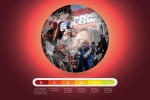By Own Correspondent
THE dry spell experienced in Zimbabwe in the last cropping season has seen most seasonal employees in the tobacco industry not turning up for work.
Tobacco Industry Marketing Board has since revealed that national output was not spared as a total of 113 101 hactares was planted in comparison to 117 645 hactares planted at the same time last year. The negative four percentage variance was because of delayed rains that were received which affected the delayed timing for planting for the dryland crop.
Sources from the NEC Tobacco industry said employment figures had marginally dropped owing to decreased hactrage.
“Contract workers are the worst affected, with some companies already cutting jobs. Recently, one company recruited only 54 contract workers compared to the 120 they used to take as seasonal workers annually,” said the sources.
Another source said the long dry spell had worsened the situation.
“This season, the tobacco crop has been affected by the El Niño weather phenomenon. Another factor is that most farmers planted during the first rains and the crop suffered due to a long prolonged dry spell,” said another sources.
The National Employment Council for the tobacco industry estimates that over 11 500 seasonal workers are engaged at the peak of the season. 80% of the employees are on seasonal contracts of employment while 20% are on contracts of employment without limitation of time.
This season, the central bank has pegged the foreign currency retention for tobacco farmers at 75 % in line with the retention level for other market players. This means that 25% of earnings will be paid in local currency.








Leave a comment